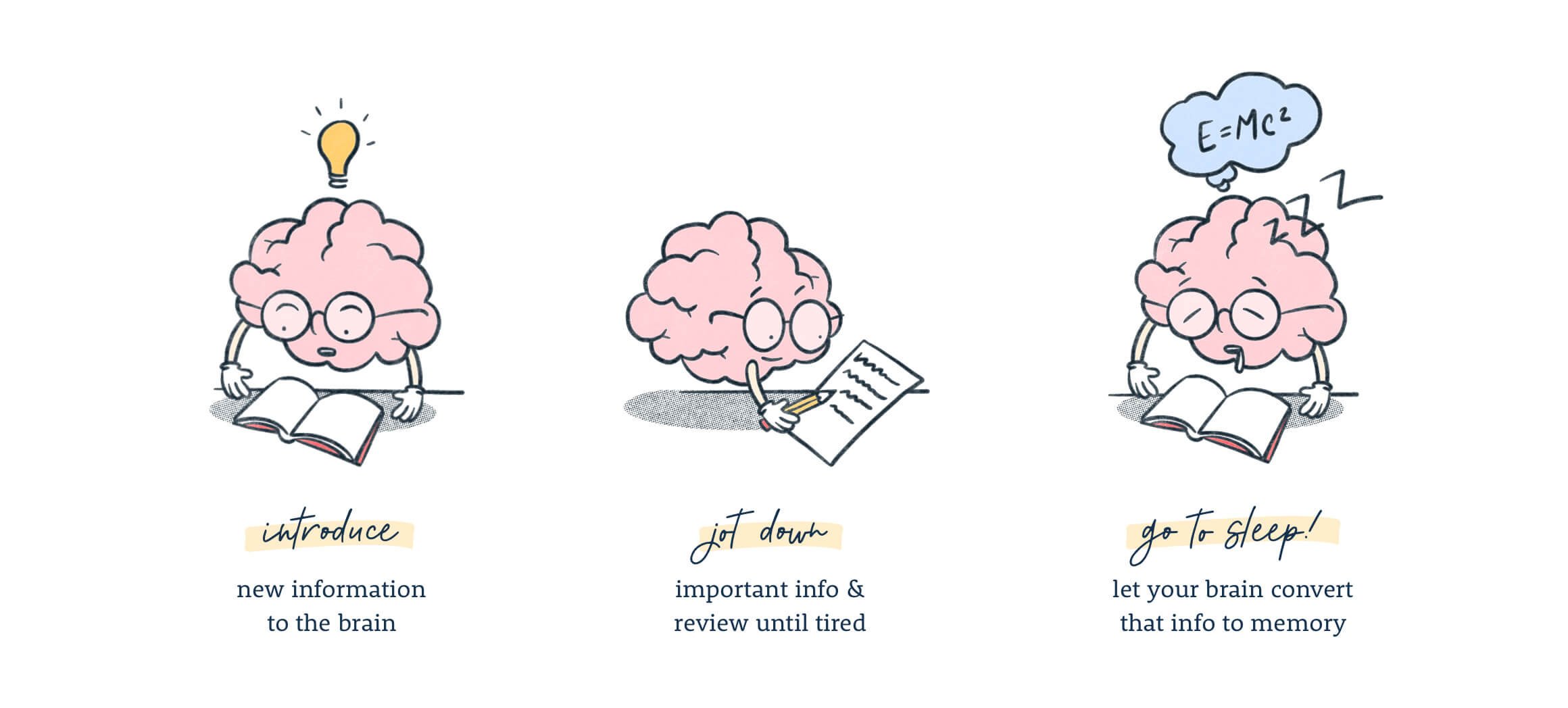Retain More by Sleeping More
When it comes to sleeping, we all know it’s an essential part of life. Some of us love it so much, it’s the first thing we think about when we wake up. Getting quality sleep on a daily basis can improve our athletic performance, better our concentration, and prevent a variety of health problems as we age. But what exactly happens to our bodies while we sleep?
We tend to believe that sleeping is a way for our brain to shut down and repair itself. However, this is not the case.
Hitting the hay helps the brain analyze memory as you rest, which is vital for retaining new information gathered throughout the day. During the night, an assortment of information moves from your short-short term memory to your long-term memory with a procedure called “consolidation,” a process of converting new data into a stable representation.
The Process of Sleep and Memory Retention
When studying for an exam, it’s easy to feel overwhelmed by the constraint of time to cram in an enormous amount of information. Studying before bed can help you avoid dreaded cramming sessions, retain more information, and reduce all-nighters.

Here’s how it’s done:
Acquisition
Start by introducing new information to the brain by reading your textbook or watching that incredibly enchanting instructional video. Go through it once, then go back and jot down important information related to your exam. After that, study and review your notes until you’re tired and ready for some z’s.
Consolidation
Go catch some shut-eye and let your body do all the work. As you sleep, the brain will form stable memories through a process of neural connection strengthening. When you study before bed, your mind starts to train itself like a muscle in your body. However, instead of repairing proteins while you sleep, your brain instructs neurons within the hippocampus to collaborate and convert information to memory.
Each of these steps is important to forming long-term memory before an exam. A study on the benefits of sleep on memory published in 2012 by Plos One found that “When sleep shortly follows declarative task learning, it actually slows the subsequent rate of deterioration during the post-sleep wake period, suggesting that an important function of sleep is to stabilize newly learned declarative memories.”
This means that going to bed as soon as you’d learned something could reduce the degree of memory weakening. Hence, the partnership between studying and sleeping is the key to maintaining new information and sharpening new memories.
Quality vs. Quantity
Now that we understand how the natural power of sleep can enhance memory, the next step is to understand how long and how often we should sleep for maximized results. Recently, a group of German neurologists tracked brain activity by studying short surges of oscillations on the electroencephalogram called “sleep spindles”, where fast activity quickly rises in amplitude then quickly decay.
Their data showed when you take a power nap, freshly learned knowledge is given a fast pass to memory consolidation, where an increase in retention takes place within the hippocampus, during the stage of “slow-wave sleep” (deep sleep stage in the sleep cycle), making it easier for your brain to recall information in the future.
In other words, all you need is a 45-60 minute power nap. Within this time frame, your brain will enter deep sleep where the process of improving associative memory performance and making memory consolidation can be possible for retaining new information. So by dozing off in a nice warm bed, you’ll be able to retain recent knowledge.
Download the Nap
Executing a focused period of studying trailed by a speedy power nap appears to be the best ingredient for memory recall. So, if you’re the kind of person who wants to gain more by working less, start studying whenever you’d like and make sure to set aside time for that beauty sleep. Napping for 40 – 60 minutes at a time will add preparation before your big exam.

 learning science
learning science